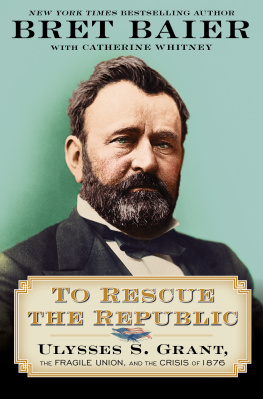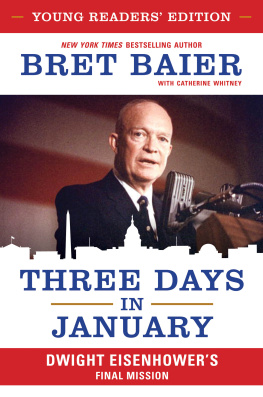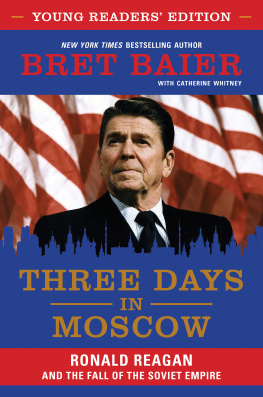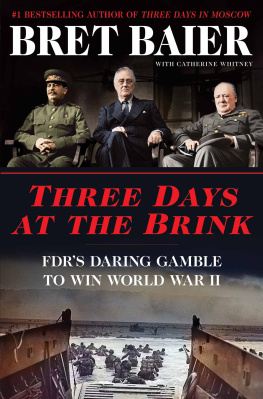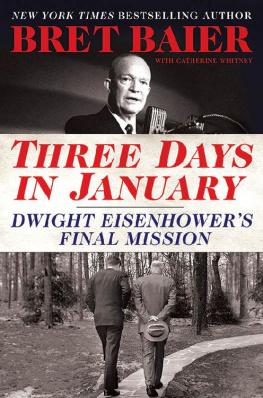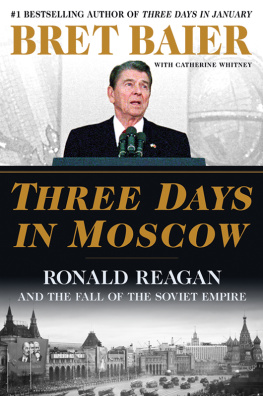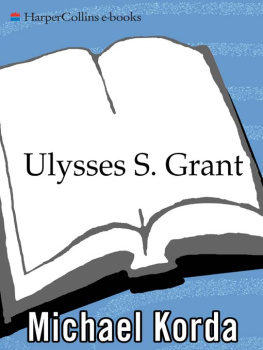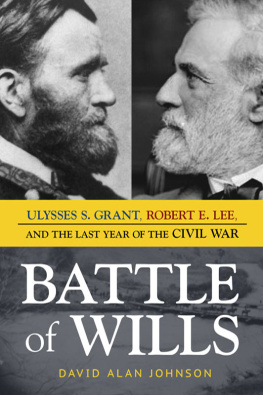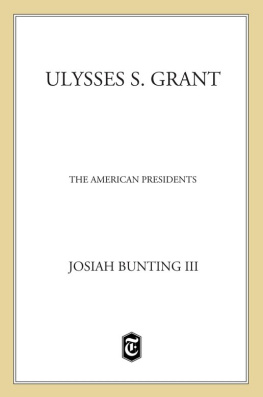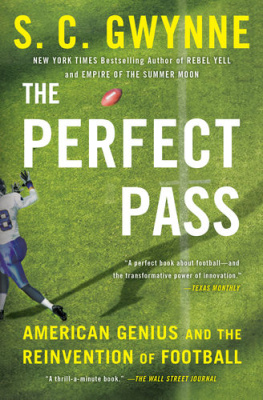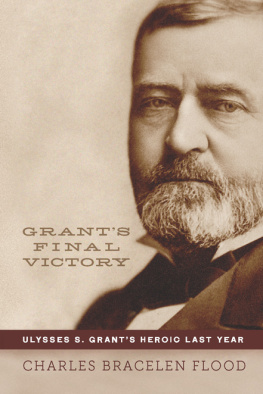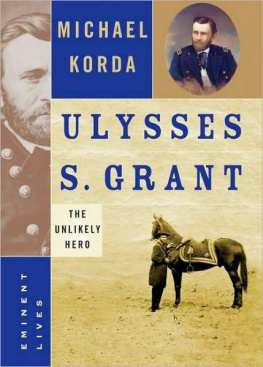Bret Baier - To Rescue the Republic: Ulysses S. Grant, the Fragile Union, and the Crisis of 1876
Here you can read online Bret Baier - To Rescue the Republic: Ulysses S. Grant, the Fragile Union, and the Crisis of 1876 full text of the book (entire story) in english for free. Download pdf and epub, get meaning, cover and reviews about this ebook. year: 2021, publisher: Custom House, genre: Non-fiction. Description of the work, (preface) as well as reviews are available. Best literature library LitArk.com created for fans of good reading and offers a wide selection of genres:
Romance novel
Science fiction
Adventure
Detective
Science
History
Home and family
Prose
Art
Politics
Computer
Non-fiction
Religion
Business
Children
Humor
Choose a favorite category and find really read worthwhile books. Enjoy immersion in the world of imagination, feel the emotions of the characters or learn something new for yourself, make an fascinating discovery.
- Book:To Rescue the Republic: Ulysses S. Grant, the Fragile Union, and the Crisis of 1876
- Author:
- Publisher:Custom House
- Genre:
- Year:2021
- Rating:4 / 5
- Favourites:Add to favourites
- Your mark:
To Rescue the Republic: Ulysses S. Grant, the Fragile Union, and the Crisis of 1876: summary, description and annotation
We offer to read an annotation, description, summary or preface (depends on what the author of the book "To Rescue the Republic: Ulysses S. Grant, the Fragile Union, and the Crisis of 1876" wrote himself). If you haven't found the necessary information about the book — write in the comments, we will try to find it.
The #1 bestselling author and Fox News Channels Chief Political Anchor illuminates the heroic life of Ulysses S. Grant
To Rescue the Republic is narrative history at its absolute finest. A fast-paced, thrilling and enormously important book.Douglas Brinkley
An epic history spanning the battlegrounds of the Civil War and the violent turmoil of Reconstruction to the forgotten electoral crisis that nearly fractured a reunited nation, Bret Baiers To Rescue the Republic dramatically reveals Ulysses S. Grants essential yet underappreciated role in preserving the United States during an unprecedented period of division.
Born a tanners son in rugged Ohio in 1822 and battle-tested by the Mexican American War, Grant met his destiny on the bloody fields of the Civil War. His daring and resolve as a general gained the attention of President Lincoln, then desperate for bold leadership. Lincoln appointed Grant as Lieutenant General of the Union Army in March 1864. Within a year, Grants forces had seized Richmond and forced Robert E. Lee to surrender.
Four years later, the reunified nation faced another leadership void after Lincolns assassination and an unworthy successor completed his term. Again, Grant answered the call. At stake once more was the future of the Union, for though the Southern states had been defeated, it remained to be seen if the former Confederacy could be reintegrated into the countryand if the Union could ensure the rights and welfare of African Americans in the South. Grant met the challenge by boldly advancing an agenda of Reconstruction and aggressively countering the Ku Klux Klan.
In his final weeks in the White House, however, Grant faced a crisis that threatened to undo his lifes work. The contested presidential election of 1876 produced no clear victory for either Republican Rutherford B. Hayes or Democrat Samuel Tilden, who carried most of the former Confederacy. Soon Southern states vowed to revolt if Tilden was not declared the victor. Grant was determined to use his influence to preserve the Union, establishing an electoral commission to peaceably settle the issue. Grant brokered a grand bargain: the installation of Republican Hayes to the presidency, with concessions to the Democrats that effectively ended Reconstruction. This painful compromise saved the nation, but tragically condemned the South to another century of civil-rights oppression.
Deep with contemporary resonance and brimming with fresh detail that takes readers from the battlefields of the Civil War to the corridors of power where men decided the fate of the nation in back rooms, To Rescue the Republic reveals Grant, for all his complexity, to be among the first rank of American heroes.
Bret Baier: author's other books
Who wrote To Rescue the Republic: Ulysses S. Grant, the Fragile Union, and the Crisis of 1876? Find out the surname, the name of the author of the book and a list of all author's works by series.

